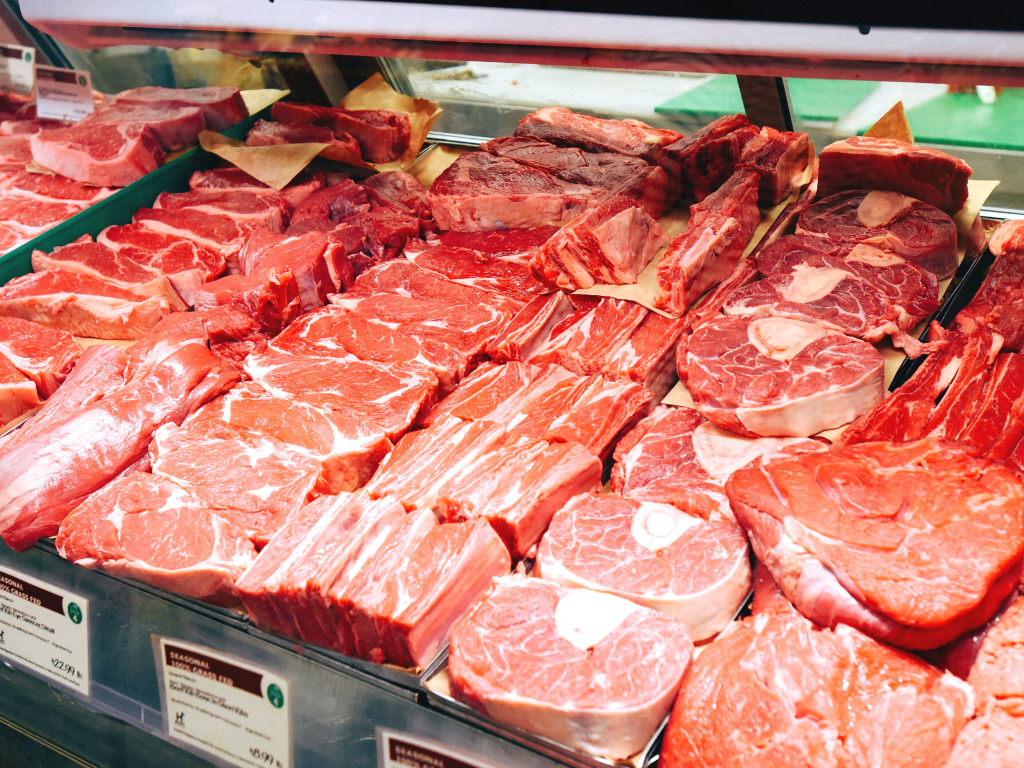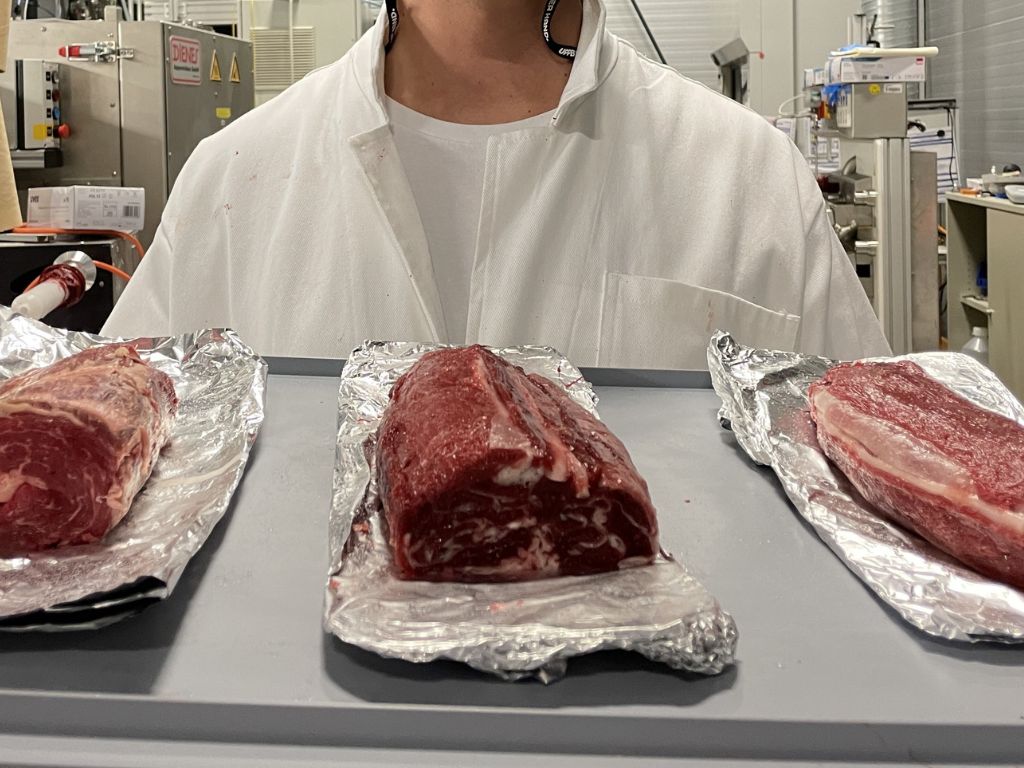Project Eaden Lands €10M for Vegan Steak That Eliminates ‘Every Single Reason’ for Animal Meat
4 Mins Read
German food-tech startup Project Eaden has announced a €10.1 million seed funding round for its novel fiber technology used to create plant-based steak.
Creandum, Atlantic Food Labs, Shio Capital, Trellis Road, and several angels including former Rügenwalder MD Godo Röben led the new funding. The initial funding round was last June. And last month, Magnetic and Atlantic Food Labs increased their investments by another €2.1m.
Project Eaden says the financing will further the development of its proprietary bio-fiber technology that creates meaty steak that looks, cooks, and tastes like conventional.
Fiber spun meat
“Project Eaden is a technology company, so we’ll be investing in our own R&D activities and the initial production setup,” Project Eaden co-founder Jan Wilmking said in a statement. Wilmking co-founded Project Eaden last year with materials scientist Dr. David Schmelzeisen and Mymuesli founder Hubertus Bessau.
“We’ve built a highly-motivated team of professionals to further develop our unique, proprietary technology over the past nine months, including tissue engineers, food technologists, material scientists, and culinary professionals,” Wilmking said.

Carl Fritjofsson, General Partner at Creandum says that eating meat is associated with excessive land and water usage and unsustainable levels of greenhouse gas emissions. “But, for most people, it’s simply too much of a pleasure to give up on,” he says.
“Until today, existing plant-based options haven’t solved this dilemma, as they lack compelling taste, texture, and look despite higher prices. Project Eaden has the potential to become the industry’s game changer. That’s why we’re so excited to lead this round, which is one of the largest in the European plant-based meat tech sector,” Fritjofsson said.
“Project Eaden is meaningful innovation at its best, representing our mission to back world-class teams with a maximum possible footprint. We are happy to continue our long collaboration with the team,” said David Rosskamp, founding partner at Magnetic.
Project Eaden says its bio fiber technology recreates the taste, texture, and appearance of animal meat. The tech is similar to fiber spinning for synthetic fiber use across other industries including textiles, aerospace, and automotive. It says it’s using the same technology for meat — noting that it’s highly scalable and affordable.
Fiber spinning is an ancient practice; Egyptians used spindles to turn flax fiber into yarn. By 1665, after the development of the spinning wheel, Robert Hooke explored the idea of producing synthetic threads. It wasn’t until the 1930s that the world saw the first spinning of fully synthetic fiber, giving rise to nylon and polyester, which revolutionized the fashion industry. Project Eaden says it’s now time for another evolution to spinning — this time for food.
Plant-based meat 2.0
“Both plant and muscle fibers are versatile building blocks with fascinating material properties, which is why so many of today’s high-tech materials are natural fiber-inspired,” Schmelzeisen said. “For example, we use carbon fiber for rockets and satellites, and biomaterial-based implants for humans. Now, for the first time, we’re replicating meat, fiber by fiber, using proven and easily scalable textile industry technologies.”
Project Eaden says these fibers can be designed with precision to meet technical requirements including elasticity, water-binding ability, and strength. The ultra-thin fibers are bundled into strands that mimic conventional muscle tissue. The fibers are then combined with vegetable fats for a marbled, plant-based meat nearly identical to its animal-based counterpart.

Project Eaden joins Juicy Marbles, another European startup working to displace whole-cut animal meat. But Project Eaden says its tech is unrivaled in taste and texture.
“Our ultimate goal is to offer consumers a product that eliminates every single reason there is to eat animals,” Wilmking said. “We intend to fully recreate and even improve on the sensory profile and the overall pleasure people experience when they eat meat.”
Bessau says a delicious plant-based steak isn’t only associated with benefits for the consumer market, “but also for the planet because livestock are responsible for six percent of all greenhouse gas emissions,” he said. “The ‘carbon hoofprint’ is just as large as the carbon footprint of the entire global transport sector – road, air and sea combined.”




